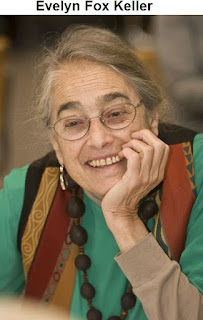Richard Dawkins has written an essay for The Spectator in which he says,
"[Science is not] a social construct. It’s simply true. Or at least truth is real and science is the best way we have of finding it. ‘Alternative ways of knowing’ may be consoling, they may be sincere, they may be quaint, they may have a poetic or mythic beauty, but the one thing they are not is true. As well as being real, moreover, science has a crystalline, poetic beauty of its own.
The essay is not particularly provocative but it did provoke Jerry Coyne who pointed out that, "The profession of science" can be contrued as a social construct. In this sense Jerry is agreeing with his former supervisor, Richard Lewontin1 who wrote,

"Science is a social institution about which there is a great deal of misunderstanding, even among those who are part of it. We think that science is an institution, a set of methods, a set of people, a great body of knowledge that we call scientific, is somehow apart from the forces that rule our everyday lives and tha goven the structure of our society... The problems that science deals with, the ideas that it uses in investigating those problems, even the so-called scientific results that come out of scientific investigation, are all deeply influenced by predispositions that derive from the society in which we live. Scientists do not begin life as scientists after all, but as social beings immersed in a family, a state, a productive structure, and they view nature through a lens that has been molded by their social structure."

Coincidently, I just happened to be reading Science Fictions an excellent book by Stuart Ritchie who also believes that science is a social construct but he has a slighly different take on the matter.
"Science has cured diseases, mapped the brain, forcasted the climate, and split the atom; it's the best method we have of figuring out how the universe works and of bending it to our will. It is, in other words, our best way of moving towards the truth. Of course, we might never get there—a glance at history shows us hubristic it is to claim any facts as absolute or unchanging. For ratcheting our way towards better knowledge about the world, though, the methods of science is as good as it gets.
But we can't make progress withthose methods alone. It's not enough to make a solitary observation in your lab; you must also convince other scientists that you've discovered something real. This is where the social part comes. Philosophers have long discussed how important it is for scientists to show their fellow researchers how they came to their conclusions.
Dawkins, Coyne, Lewontin, and Ritchie are all right in different ways. Dawkins is talking about science as a way of knowing, although he restricts his definition of science to the natural sciences. The others are referring to the practice of science, or as Jerry Coyne puts it, the profession. It's true that the methods of science are the best way we have to get at the truth and it's true that the way of knowing is not a social construct in any meanigful sense.
Jerry Coyne is right to point out that the methods are employed by human scientists (he's also restricting the practice of science to scientists) and humans are fallible. In that sense, the enterprise of (natural) science is a social construct. Lewontin warns us that scientists have biases and prejudices and that may affect how they do science.
Ritchie makes a diffferent point by emphasizing that (natural) science is a collective endeavor and that "truth" often requires a consensus. That's the sense in which science is social. This is supposed to make science more robust, according to Ritchie, because real knowledge only emerges after carefull and skeptical scrutiny by other scientists. His book is mostly about how that process isn't working and why science is in big trouble. He's right about that.
I think it's important to distinguish between science as a way of knowing and the behavior and practice of scientists. The second one is affected by society and its flaws are well-known but the value of science as way of knowing can't be so easily dismissed.
1. The book is actually a series of lectures (The Massey Lectures) that Lewontin gave in Toronto (Ontario, Canada) in 1990. I attended those lectures.














